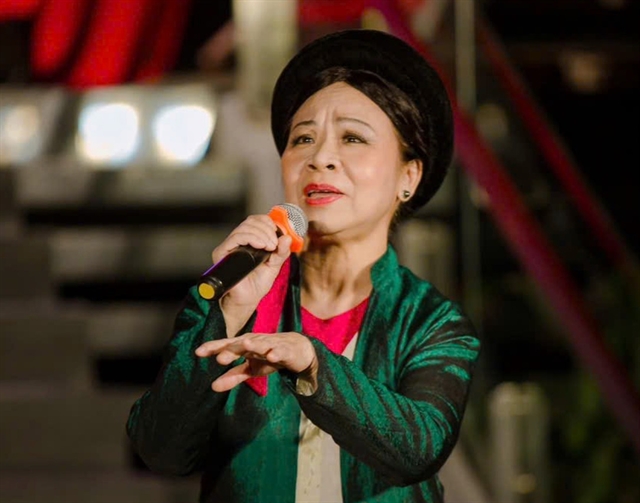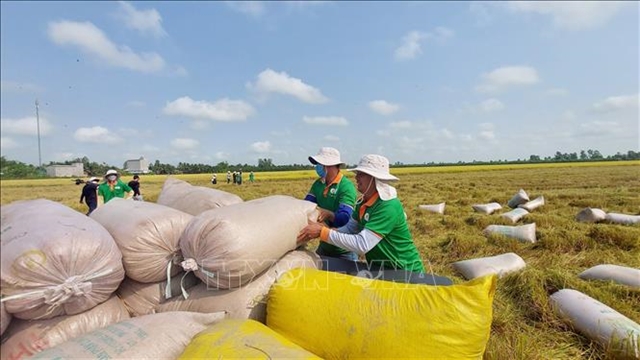 Inner Sanctum
Inner Sanctum

This year marks the 30th anniversary of the Đổi Mới renewal process. These reforms have been possible thanks to concerted efforts by the people of Việt Nam — and of course those living overseas. Bùi Kiến Thành, a naturalised US citizen, who returned to Việt Nam after Đổi Mới began, has spent the last 25 years giving advice to the country’s policy-makers and executives. He spoke with Nguyễn Mỹ Hà about his experiences.
460102321PM.JPG) |
| Photo courtesy of Mr. Bùi Kiến Thành |
Independent senior policy advisor Bùi Kiến Thành has lived in Việt Nam since 1993. He graduated from Columbia University School for General Studies and worked under Ngô Đình Diệm’s government in Sài Gòn between 1954 and 1963. Listed No.12 in the most-wanted list of the Generals’ coup-d’etat against the Diệm - Nhu brothers after they were toppled in the coup in 1963, Bùi Kiến Thành spent 15 months in prison under the new regime and was released thanks to his wife’s lobbying efforts.
He then went to live and work in France and the US for 26 years. In 1991, five years after the sixth National Congress of the Communist Party of Việt Nam decided to embark on a renewal process, Bùi Kiến Thành set his foot on Việt Nam’s soil for the first time after 26 years.
Having been consulted on policy-making processes regarding the normalisation process between Việt Nam and the US, he held talks with the Government’s envoy in the early 1980s. In 1991, then-PM Võ Văn Kiệt invited him to come back and live in Việt Nam. He was among influential people who have helped turn former foes into partners. His points of view are his own and do not reflect the views of Việt Nam News.
Inner Sanctum: You were born in Việt Nam, studied in the US, and worked for the Sài Gòn government between 1954 and 1963. Where were you in April 1975?
I was in Paris, France working on my real estate company. I don’t know if you know this, but on January 21, 1975, the American Congress decided not to allow its government to spend a single dollar supporting its ally in southern Việt Nam. Since then we knew the end was near. Some hoped for a peaceful reunification, but the northern army advanced too fast. It became the final victory for the North.
Inner Sanctum: US outgoing president Barack Obama is visiting Việt Nam soon. Where do you see the relationship heading in five or 10 years?
We signed the Trans Pacific Partnership with the US, so the relationship will evolve around implementing this pact. It is not only a commercial pact, but it also requires Việt Nam to reform its economic structure for fuller international integration. The implementation of the TPP also requires accompanying administrative reform and in a broader picture, the relationship with the US means more than just a multilateral trade agreement.
First let’s look at the most prominent issue. The US would love to see Việt Nam grow economically. But to grow economically strong, we need to create legal infrastructure and favourable administrative procedures, improve human resource capacity.
In global economic integration, the corruption in Việt Nam has become severe. It’s like a cancer that eats deep into the organs of the body. How do we solve that problem? If we cannot solve the corruption issue, we cannot grow.
Let’s see this problem from an economic angle: the "lubrification expenses" account for a significant percentage of the total costs of a final product or service provided by Vietnamese companies. In an open market, even with a difference of one percentage in price, or even less, Vietnamese enterprises will no longer be competitive. Thus fighting corruption is a top priority for Việt Nam to grow and be fully integrated into the world’s economy.
On the other hand, if we cannot solve the corruption problem, it will be very difficult for US companies to operate in Việt Nam. US companies must adhere to the Anti-corruption Law. All companies doing business in Việt Nam must sign an Anti-bribery Compliance form. Bribery cases are considered criminal. Managers of US companies would not want to get themselves into trouble while bringing in profit for the companies. Corruption would slow down or even prevent American companies from investing in Việt Nam.
I must point out that the Government already pays much attention to fighting corruption. Take for example the Anti-corruption Committee chaired by the General Secretary himself. It shows the commitment of the leadership. But we have not accomplished much since that Resolution.
Regarding President Obama’s visit, the importance is the diplomatic gesture. Also during the visit, many core issues are to be discussed between the two countries.
How far these talks go depends on the leadership of both sides. It is on the shoulders of the Communist Party leadership to push forward stronger reforms to renew the country according to the new integration circumstances.
Inner Sanctum: Aside from economic co-operation, have you noticed growth in the number of Vietnamese students going to study in the US?
If Việt Nam wants growth, it needs to prepare its human resources. A majority of the leadership now have been trained in the former Soviet Union and countries of the Eastern European Bloc. Now the ’80s and ’90s generations get to study in Western Europe and North America. Many of them excel in studying, but will they come back to work in the public sector? When they come back will they get the positions of significant responsibility?
Now there are 18,000 or 19,000 students studying in the US. They either get scholarships or are supported by their families, but do not look at the numbers. Pay attention to what happens to those who come back. Will the Government work out appropriate policies for young people to contribute to the growth of the nation? We also need to encourage patriotism among our youth, and raise their consciousness about the country, the nation and the importance of their contributions.
The 10th Communist Party Congress in 2006 issued a very open resolution that emphasises that Government management positions are open for people in the country and overseas, members or non-members of the Party. But up to now, we have not seen progress.
Inner Sanctum: You’ve studied in the US and worked in France. Have you had difficulties when you tried to advise the leadership on certain issues?
Regarding the macro policies I have advised the leadership on in the 1980s, most of them have become reality. But some have not been implemented.
For instance in 1993 and 1994, I wrote a report warning about environmental consequences if economic achievements were to be obtained at any cost. Within 50 years, we can achieve considerable economic development, but the dangers of environmental destruction may not be recoverable within a hundred or even a thousand years. The rivers are contaminated and if the people use water from them, then how far down the line will their children’s generation and their children’s children be hurt?
The leadership I believe is well aware of all the dangers. But the implementation process has not been reinforced and maintained. Now we see the horrifying consequences of environmental pollution. This is one of my regrets, that the Government has issued regulations or incorporated the environmental clauses in issuing investment licences, but it did not reinforce nor inspect it strictly enough.
Another important issue I have consulted on was the monetary and interest rate policy. In 2012, when the loan rate by commercial banks rose to 18, 19 and above 20 per cent, I had advised the Government to study how to bring the rate to under 5 per cent so that Vietnamese companies could maintain their competitiveness with foreign companies. We need to empower the structure and functions of the Central Bank. The Central Bank’s responsibility is to regulate the monetary flow for sustainable economic growth. It needs to enforce the appropriate short-, mid- and long-term interest rates so businesses can work out their short-term as well as five-year or 10-year business plans.
Vietnamese companies will not be able to compete with foreign companies if their loan rates stay at high level, whereas interest rates in the region vary from one to five per cent. I have submitted my proposals regarding this matter, but it has not received much attention so far.
Inner Sanctum: How did you give your consultation? In a meeting? At a conference?
I have been an independent policy advisor to the Government. I do not work for any particular Government body. I have also been invited to Government law preparation hearings to present my proposals. Such meetings take place only once or twice a year.
You asked me if the leadership listens to my consultations. The answer is yes, they did. But to bring my ideas and suggestions into reality, they need to be factored into their decision-making process, and that still depends on the various project consultation teams. My consultations have always been quiet, I do not make a big fuss about it. If they are not listened to, then I keep explaining, still in a quiet way, of course. VNS




